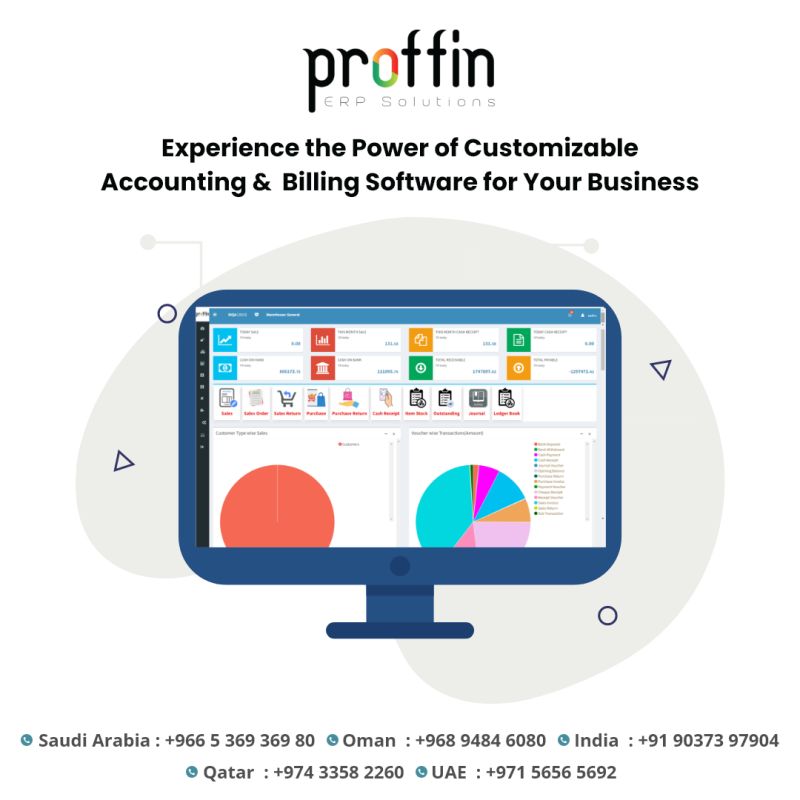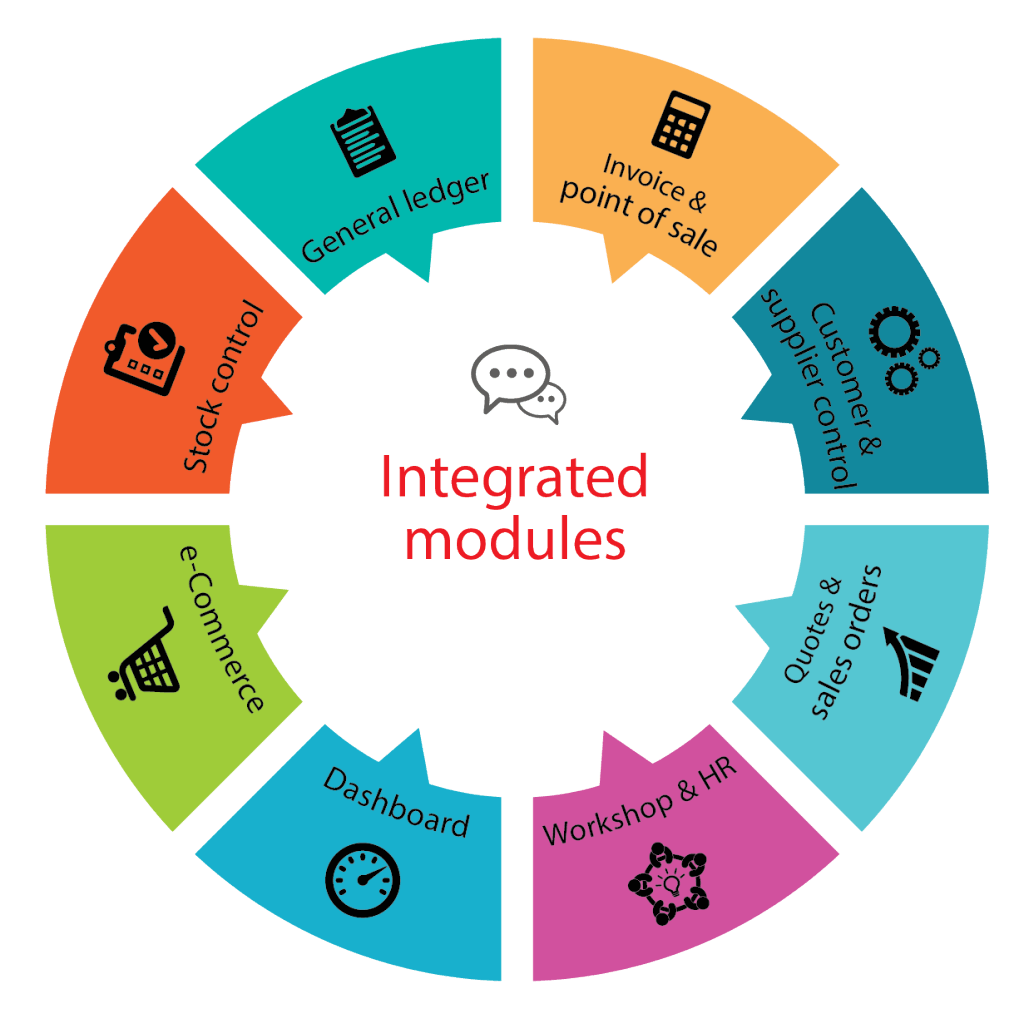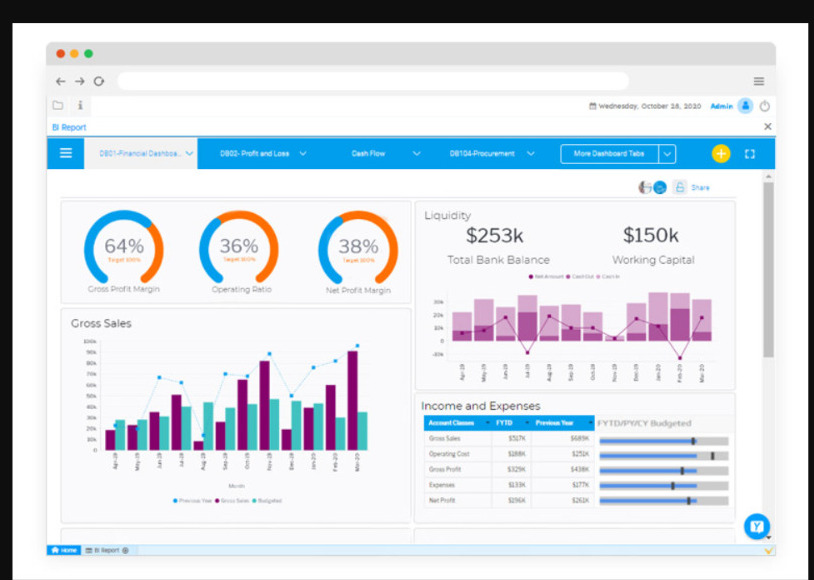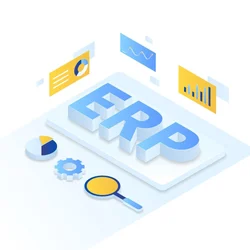
Online accounting software is a computer program or application designed to streamline and automate various financial tasks and processes within a business or organization. It provides a digital solution for managing financial transactions, tracking income and expenses, generating financial reports, and ensuring accurate record-keeping. Online accounting software plays a crucial role in modern businesses, offering efficiency, accuracy, and convenience.
One key feature of ERP accounting software is stock management software functionality. This allows businesses to track and manage their inventory levels, monitor stock movements, and streamline the procurement process. Stock management software within online accounting software provides real-time visibility into stock levels, helps automate inventory replenishment, and enables businesses to make informed decisions regarding purchasing and sales.
Another essential component of online accounting software is billing software. Billing software enables businesses to generate and manage invoices, track payments, and automate billing software processes. It simplifies the invoicing software workflow by automatically calculating totals, applying taxes, and generating professional-looking invoices. Billing software within online accounting software ensures accuracy, improves cash flow management, and facilitates prompt payment processing.
Cloud accounting software refers to online accounting software that operates on cloud accounting software computing technology. Instead of being installed on a local computer, cloud accounting software is hosted on remote servers and accessed via the internet. This allows users to access their accounting data from any device with an internet connection, providing flexibility and convenience. Cloud accounting software offers real-time data synchronization, data backup and security, and collaborative features, making it an ideal choice for businesses with remote teams or multiple locations.Online accounting software encompasses various functionalities, including stock management software, billing software, and cloud capabilities, to provide businesses with a comprehensive financial management solution. It improves efficiency, accuracy, and accessibility while reducing manual efforts and minimizing the risk of errors. Implementing online accounting software empowers businesses to streamline their financial processes, make data-driven decisions, and focus on core operations.
-
Financial Management: Online accounting software helps businesses manage their financial activities effectively. It enables the recording and tracking of income, expenses, assets, liabilities, and equity. With features like general ledger, accounts payable, and accounts receivable, businesses can maintain accurate and up-to-date financial records.
-
Automated Bookkeeping: Online accounting software automates routine simple bookkeeping tasks, such as data entry, bank reconciliations, and transaction categorization. This reduces manual errors, saves time, and ensures data accuracy. Automated simple bookkeeping software also enables faster financial close processes.
-
Financial Reporting: Online accounting software generates a wide range of financial reports, including balance sheets, income statements, cash flow statements, and profit and loss statements. These reports provide insights into the financial health of the business, aid in decision-making, and help comply with regulatory requirements.
-
Tax Management: Online accounting software simplifies tax-related processes. It can calculate taxes, generate tax forms, and provide tax reports. By automating tax management, businesses can ensure accurate tax calculations and stay compliant with tax regulations.
-
Integration with Other Systems: Online accounting software solutions offer integration capabilities with other business systems, such as customer relationship management (CRM) software or inventory management systems. This integration allows for seamless data flow and eliminates the need for manual data entry across different platforms.
-
Data Security: Online accounting software provides data security measures to protect sensitive financial information. This includes user access controls, data encryption, and regular backups. Cloud accounting software often offers robust security protocols implemented by the service provider.
-
Scalability: Online accounting software is designed to accommodate the growth of businesses. It can handle increasing transaction volumes, expanding product lines, and additional users. This scalability ensures that the software remains capable of supporting the business's needs as it grows.
-
Cost Savings: Implementing online accounting software can lead to cost savings in multiple ways. It reduces the need for manual labor, minimizes the risk of errors and financial discrepancies, and streamlines processes. These efficiencies contribute to cost savings in terms of time, resources, and improved financial management.
Online accounting software provides businesses with a powerful tool to manage their finances efficiently, make informed decisions, and improve overall productivity. Its comprehensive features and automation capabilities make it an essential tool for businesses of all sizes.


.jpg)


